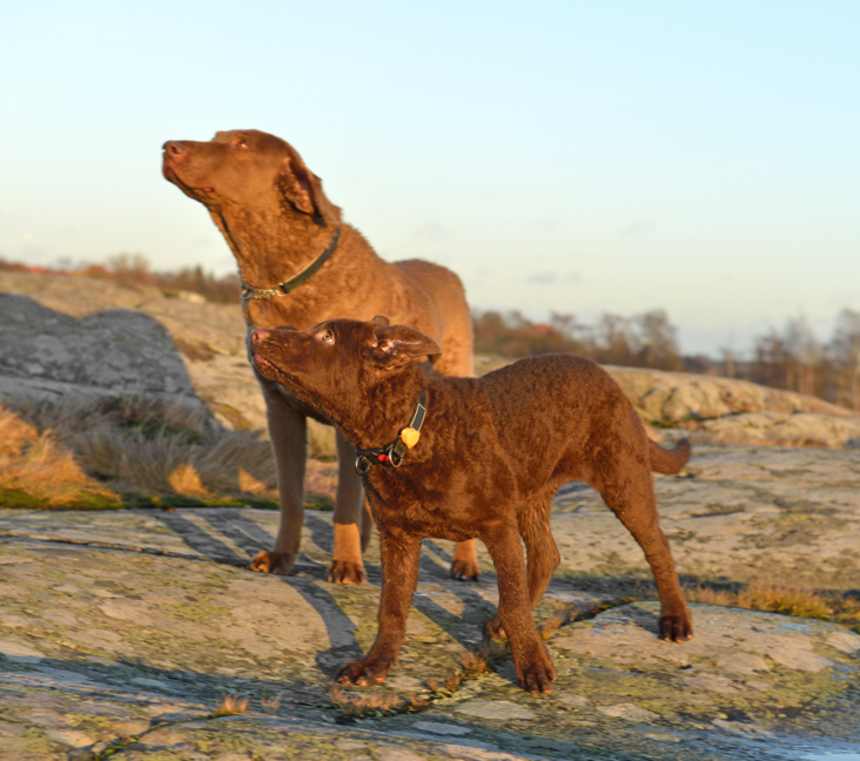Do Chesapeake Bay Retrievers have health issues?

The Chesapeake Bay Retriever is generally healthy but may be susceptible to the following problems:
- Hip and/or elbow dysplasia: Hip and elbow dysplasia are two of the most common skeletal diseases seen in dogs. They are similar diseases in which either the hip or elbow joint has grown abnormally or is misshapen. The abnormal shape prevents the joints and sockets from adequately meeting one another, resulting in rubbing and grinding instead of sliding smoothly. Though the main complication with hip dysplasia is joint instability, the abnormalities present in elbow dysplasia often result in pieces of bone and/or cartilage breaking loose and irritating the joint tissues. Over time, the rubbing from dysplasia can cause a variety of issues, such as pain, lameness, and secondary osteoarthritis. Surgery can fix the joint if diagnosed before the onset of arthritis. If you are rescuing a Chesapeake Bay Retriever, have them checked out by a vet to see if they are prone to getting dysplasia.
- Eye issues: This breed may develop cataracts, a common eye condition that causes cloudiness in the eye and obstructs vision, and progressive retinal atrophy (PRA), a progressive degenerative disease affecting the retina that eventually leads to blindness.
- Von Willebrand disease: Von Willebrand disease (vWD) is the most common inherited bleeding disorder seen in dogs. It happens when a dog does not produce enough of a specific protein that helps the blood cells used in clotting stick together. This results in dogs that are unable to clot properly and could cause hemorrhages or other bleeding issues. The deficient protein is called von Willebrand factor (vWF).
- Cranial cruciate disease: The cranial cruciate ligament is an important stabilizer in the knee joint. Cranial cruciate ruptures cause joint instability and are the most common cause of hind leg lameness in dogs. Surgery is recommended to prevent the tear from progressing to more severe joint disease.
- Others: Gastric dilatation-volvulus, a sudden, painful, and life-threatening swelling and twisting of the abdomen. Your vet may recommend hip, eye, and ear tests.